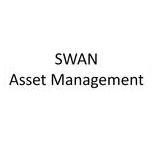 Steve Smith is founder of Cochranville, Pennsylvania based SWAN Asset Management, which runs three Covestor portfolios: Hedged Equity, International Hedged Equity and Christian Agape Hedged Equity.
Steve Smith is founder of Cochranville, Pennsylvania based SWAN Asset Management, which runs three Covestor portfolios: Hedged Equity, International Hedged Equity and Christian Agape Hedged Equity.
The Treasury market rallied to a level where the 10-year note reached a 1.39% yield recently. We are now at historically low yields. Not long ago, these rates were earned routinely on Treasury Bills and money market funds. At this point, the Federal Reserve has pushed short-term rates so low that the policy is often referred to as a form of financial repression.
Other policies have been designed to bring longer-term rates down as well. In its unsuccessful attempt to stimulate the economy, the Fed is trying to push savers toward consumption or toward making riskier investments. Although rates are at extraordinarily low levels, these policies have not helped to generate economic activity. Instead, investors are paying down debt or putting funds into the safest investments available.
Return of capital appears to have become a more important investment objective than return on capital. This preference is even more dramatic in Europe where short-term yields are now negative in countries like Germany and Switzerland which are considered safer credits.
Whether in the United States or abroad, exceptionally low yields project a concern about growth. Europe is already slipping into recession, and the U.S. may be entering another recession according to the Economic Cycle Research Institute (ECRI).
The somber tone of the bond market has not yet been reflected in the stock market. Generally, the bond market interprets and reacts to economic and financial changes quicker than the stock market. If bonds lead and stocks follow, it would be prudent to own investments that are more defensively-postured.

